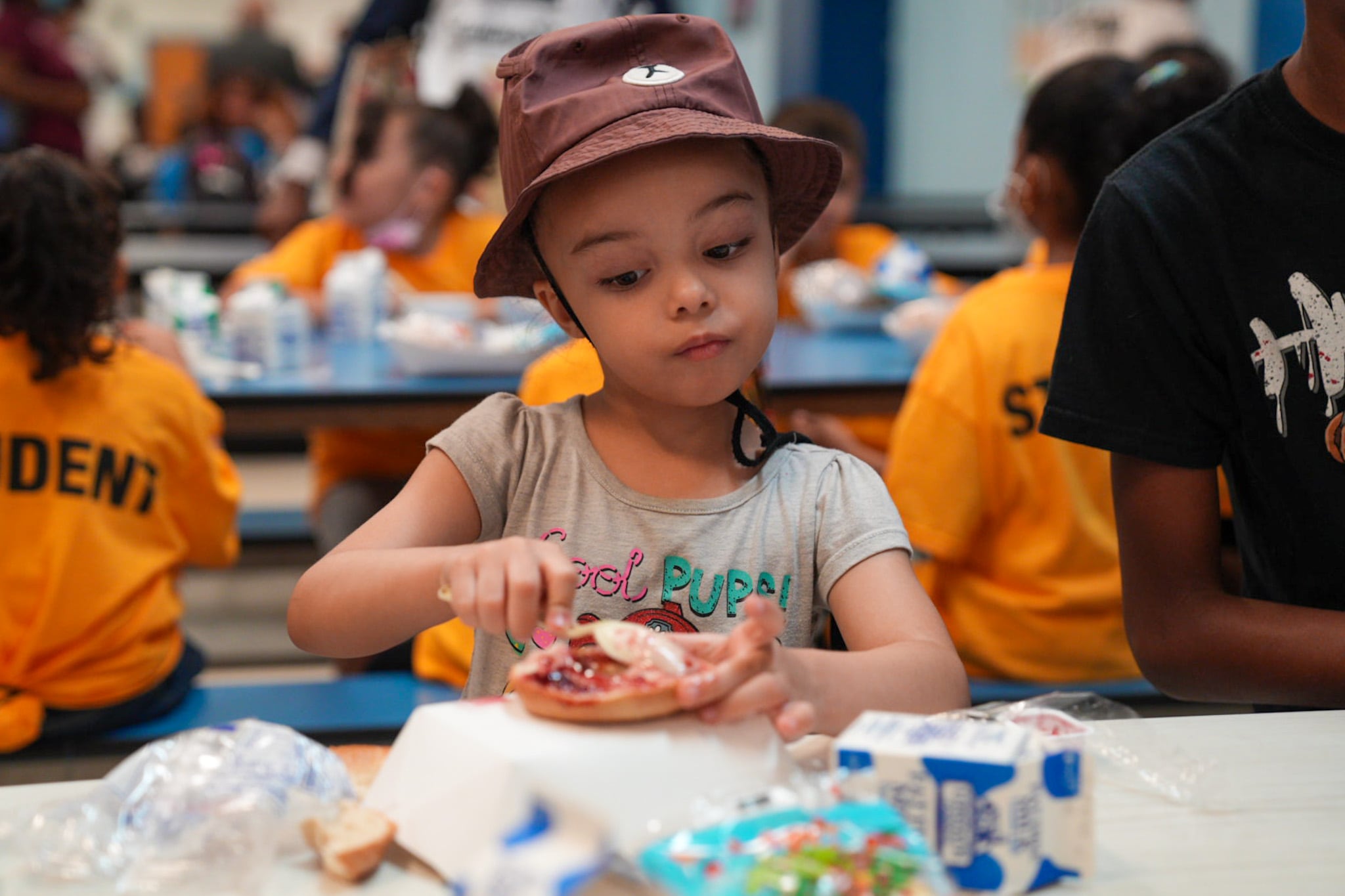Sign up for Chalkbeat New York’s free daily newsletter to keep up with NYC’s public schools.
New York City public school families: Hold onto your state-issued food benefits cards. Another allotment of $120 per child is headed your way soon.
The latest disbursement of funds — known as the Pandemic Electronic Benefit Transfer, or P-EBT — aims to help cover summer meal costs for families whose students usually receive free meals at school. Since New York City public schools have universal meals, all families are eligible regardless of household income.
The latest food benefits will roll out later this summer, though state officials didn’t provide a precise timeline. The benefits must be issued by Dec. 31, according to federal guidelines.
The funds follow prior disbursements in recent years, including funds of up to $1,671 per child that began rolling out earlier this year. Those funds were based on COVID-related absences or remote-learning days during the 2021-22 school year, as well as an additional credit for the summer of 2022.
In total, the state has issued $5.4 billion in P-EBT benefits since 2020, with about 60% of benefits issued directly to low-income families who receive federal benefits through the Supplemental Nutrition Assistance Program, or SNAP. The new summer installment will be the final round of P-EBT benefits for school-age children, state officials said.
In a statement, Justin Mason, a spokesperson for the state’s Office of Temporary and Disability Assistance, said the agency has conducted “extensive public outreach” and “worked closely with advocacy organizations across the state to ensure all eligible families are aware of these benefits and could take steps to redeem them.”
Advocates have praised the program for providing critical support across New York, especially as the pandemic has placed additional strain on struggling families.
[More: Here’s how NYC families can find free summer meal sites]
In a recent survey, nearly 75% of New York families said it had become harder to afford groceries this past year, according to No Kid Hungry, a national campaign run by the nonprofit Share Our Strength.
“With so many New Yorkers struggling to pay for food, we’re relieved the USDA has approved the State’s plan to provide P-EBT benefits to eligible families,” said Rachel Sabella, director of No Kid Hungry NY, in a statement.
For those on a low budget, the USDA estimates a family of four with two school-age children would spend roughly $250 per week on food — or around $1,000 each month.
Who is eligible for P-EBT?
All families with children who attended K-12 in New York City public schools this past school year are eligible for the summer food benefits. Those in charter, private, and other schools who received free meals through the federal school lunch program are also eligible.
Families can receive the benefits regardless of their immigration status.
Do you have to apply for the food benefits?
The benefits will be issued automatically and families do not have to apply for them.
How do you get the benefits?
Families that receive SNAP, state Temporary Assistance, or Medicaid benefits will get their disbursements directly added to those accounts.
All other eligible families will receive the latest round of benefits on the same P-EBT card where they received prior installments.
What if you lost your state-issued P-EBT card?
Those who have lost their P-EBT card can get a replacement by calling 1-888-328-6399.
What can you use P-EBT for?
The benefits can only be used to purchase food items, and are available to families for 274 days after being issued.
Julian Shen-Berro is a reporter covering New York City. Contact him at jshen-berro@chalkbeat.org.





